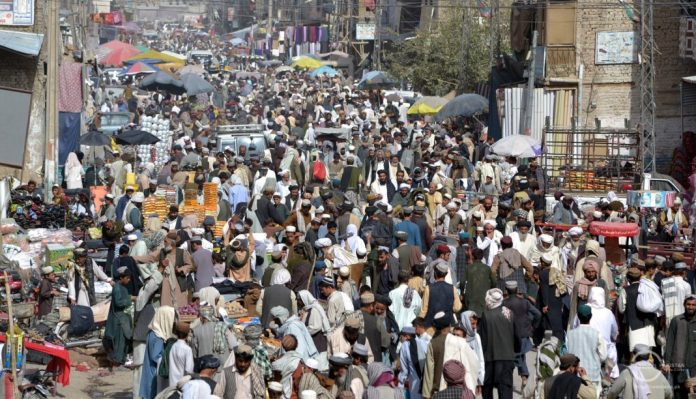Peshawar: The ongoing repatriation and deportation of Afghan refugees from Pakistan has not only compelled them to sell valuable property and businesses for a song but also abandon spouses with Pakistani nationality.
Pakistani women married to Afghan men are in a fix as they don’t want to leave their families in the Khyber Pakhtunkhwa province and the tribal areas along Pakistan-Afghanistan border by moving to a new country.
“I have my family here and we have never visited Afghanistan,” Bano Gul, 40, told News Lens. “There is nothing in Afghanistan for my husband to do. How would we live if we go there?”
Gul belongs to a poor family in Koladher, Charssadda. She is married to an Afghan whose family got settled in the Charssadda district 35 years ago when the first wave of refugees entered Pakistan in the early 1980s, in the wake of Russian invasion of Afghanistan. She has three sons and two daughters.
“I never thought there would be time when my husband would want to leave this home for Afghanistan,” said Gul. Their children study in a local government school and her husband runs a shoe shop in the Charssadda bazaar. “We have a very happy life here.”
According to United Nations High Commission for Refugees (UNHCR), with over 1.5 million registered Afghan refugees, Pakistan hosts 10.5 percent of the global refugee population which also constitutes the world’s largest protracted refugee situation under UNHCR’s mandate.
Originating mainly from the provinces in the eastern border areas, the majority of registered Afghan refugees in Pakistan are ethnic Pashtun (85 percent) with smaller numbers from other ethnic groups, including Turkmen, Uzbek, Tajik and Hazara, says UNHCR.
According to the Khyber Pakhtunkhwa Home and Tribal Affairs Department, 1 million Afghan refugees live without registration in KP and Ex-FATA (this area is now part of Khyber Pakhtunkhwa province). An official at the department, who wished to stay anonymous because he was not authorized to speak to media, said the long stay of Afghan refugees generally in Pakistan and particularly in Khyber Pakhtunkhwa had changed their refugee status into family relations with locals.
“The ratio of inter-marriages between Pakistanis and Afghans is high, especially between the Pashtuns who live on both sides of the border,” said the official.
He said the majority of cases of intermarriages were reported in Mardan, Charssada, Peshawar, Nowshera, Swabi, Upper and Lower Dir in the Khyber Pakhtunkwa province and some parts of the Ex-FATA.
In the past, federal governments have extended the legal residency deadline for registered Afghans multiple times. However in June 2016, the federal government extended the stay for registered Afghan refugees for six months – till the end of 2016 with no intent of further extension.
The official at the KP Home and Tribal Affairs Department said that as per the Pakistan Citizenship Act 1951, Afghan refugees were not given Pakistani nationality, even those born in Pakistan. He said Pakistani women married to Afghan nationals could go with their husbands to Afghanistan through a proper visa procedure. “If their husbands want to live in Pakistan, they could come here through visa and live according to the country rules for foreigners.”
Nazakat Bibi, who is married to an Afghan Raza Haroon Usami, said her husband was born in Pakistan after his family sought refuge in Peshawar 30 years ago. She said her husband and his family members owned business and property here.
Bibi, who has three sons, said she didn’t want to leave Pakistan. “When I resisted the idea of leaving for Afghanistan, my husband said he would go with my sons and I could live here alone if I wish to. I cannot live without my children so I have to leave for Afghanistan.”
However, according to the Federal interior Ministery the children of an Afghan man married to a Pakistani woman would be treated as Afghan nationals, not Pakistanis.
Amina Rafiq, a legal expert and senior lawyer in Peshawar High Court, said that according to the UNHCR Solutions Strategy for Afghan Refugees (SSAR) formulated by Afghan Management and Repatriation Strategy (AMRS) Cell of Home Department, Afghan refugees married to Pakistani women would not be given Pakistani nationality.
She said that there were many cases where Pakistani women didn’t want to go to Afghanistan with their Afghan spouses.




